Firm Dynamics and Employment Outcomes
In a market economy, firm foundations and closures are important drivers of resource (re)allocation, structural change, and economic development which is particularly important with respect to the economic transformation of East Germany from a state-directed to a market economy. At the same time, job displacement coming along with structural change may have serious consequences for affected employees, such as unemployment, earnings losses, or lower job quality in a new job. This research group uses microeconometric methods to analyze foundation, evolution, and failure of firms, the amount and quality of jobs created by new firms and the consequences of firm closures for employees, in particular in terms of labor market outcomes such as employment and wages.
Research Cluster
Productivity and InstitutionsYour contact

Mitglied - Department Structural Change and Productivity
EXTERNAL FUNDING
01.2020 ‐ 06.2024
The Rise of Populist Parties in Europe: The Dark Side of Globalization and Technological Change?
VolkswagenStiftung
Globalisation may have increased prosperity in general, but has also led to unemployment, wage inequality, outward migration and, thus, ageing populations in many European regions. This project examines whether these economic burdens lead to votes for populist parties.
01.2019 ‐ 06.2022
MICROPROD („Raising EU Productivity: Lessons from Improved Micro Data“)
European Commission
The goal of MICROPROD is to contribute to a greater understanding of the challenges brought about in Europe by the fourth industrial revolution and the associated ‘productivity puzzle’ in a context of globalisation and digitisation, and to provide alternative policy options to better address these challenges.
This project has received funding from the European Union’s Horizon 2020 research and innovation programme under grant agreement No 764810.
07.2018 ‐ 12.2020
Firm Wage Differentials in Imperfect Labour Markets: The Role of Market Power and Industrial Relations in Rent Splitting between Workers and Firms
German Research Foundation (DFG)
The main purpose of this proposal is to grasp a firmer understanding of how employment rents are split between workers and employers in imperfect labour markets and how labour market institutions, such as unions and works councils, influence the distribution of rents. In that it not only promises new insights into the wage formation process and the likely consequences of important labour market trends like falling unionisation and worker codetermination, but also promises to inform important public policy debates, such as which rights should be granted to organised labour.
02.2019 ‐ 09.2019
Evaluation of the IAB Establishment Panel 2018 and Preparation of a Results Report for West and East Germany
Final report: Fehlende Fachkräfte in Deutschland – Unterschiede in den Betrieben und mögliche Erklärungsfaktoren: Ergebnisse aus dem IAB-Betriebspanel 2018. IAB-Forschungsbericht 10/2019. (in German, English abstract available)
04.2016 ‐ 03.2019
Wage and Employment Effects of Bankruptcies
German Research Foundation (DFG)
The project analyzes the process and the consequences of firm failure. For the first time, evidence on the consequences of small firms’ bankruptcy on employees’ earnings and wages is provided. The project e.g. shows that employees of small firms are more likely to see their employer failing but, at the same time, face smaller earnings and wage losses than employees displaced from larger firms. Check the below research articles for further insights.
01.2018 ‐ 12.2018
Evaluation of the IAB Establishment Panel 2017 and Preparation of a Results Report for West and East Germany
Final report: Lohnunterschiede zwischen Betrieben in Ost- und Westdeutschland: Ausmaß und mögliche Erklärungsfaktoren. Ergebnisse aus dem IAB-Betriebspanel 2017. IAB-Forschungsbericht 6/2018. (in German, English abstract available)
01.2017 ‐ 09.2017
Evaluation of the IAB Establishment Panel 2016 and Preparation of a Results Report for West and East Germany
Final report: Produktivitätsunterschiede zwischen West- und Ostdeutschland und mögliche Erklärungsfaktoren. Ergebnisse aus dem IAB-Betriebspanel 2016. IAB-Forschungsbericht 16/2017. (in German, English abstract available)
Refereed Publications
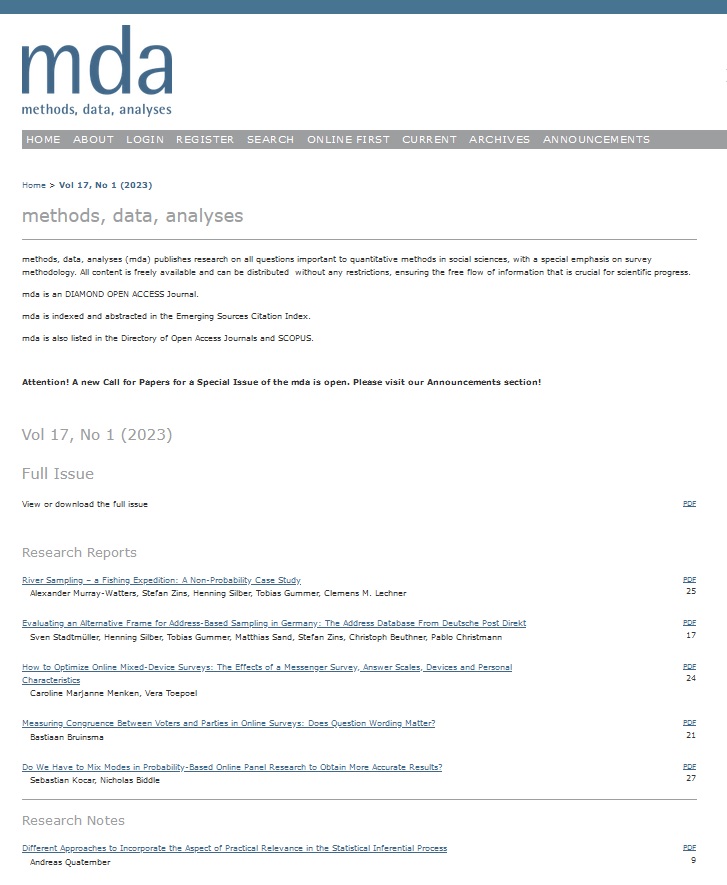
How Can Skill Mismatch be Measured? New Approaches with PIAAC
in: Methods, Data, Analyses, No. 2, 2014
Abstract
Measuring skill mismatch is problematic, because objective data on an individual skill level are often not available. Recently published data from the Program for the International Assessment of Adult Competencies (PIAAC) provide a unique opportunity for gauging the importance of skill mismatch in modern labor markets. This paper systematically compares existing measures of skill mismatch in terms of their implications for labor market outcomes. We also provide a new measure that addresses an important limitation of existing measures, namely, assigning a single competency score to individuals. We find that the importance of skill mismatch for individual earnings differs greatly, depending on the measure of mismatch used.
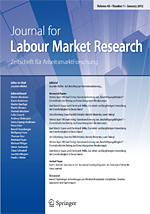
Firm Leadership and the Gender Pay Gap: Do Active Owners Discriminate more than Hired Managers?
in: Journal for Labour Market Research, No. 1, 2014
Abstract
Using a large linked employer–employee data set for Germany, we investigate differences in the unexplained gender pay gap between owner-run and manager-run firms. We hypothesise that owner-managers and hired managers differ in their discretion to engage in profit-reducing taste discrimination against women, which would translate into different pay gaps depending on leadership regime. We find that unexplained gaps are significantly higher in owner-run firms, both statistically and economically. Yet, scrutinising these results by restricting our analysis to firms that only differ in leadership regime, this substantial difference disappears. Therefore, our findings do not support that active owners are more discriminatory per se.
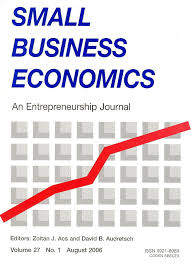
Establishment Exits in Germany: The Role of Size and Age
in: Small Business Economics, No. 3, 2013
Abstract
Using comprehensive data for West Germany, this paper investigates the determinants of establishment exit. We find that between 1975 and 2006 the average exit rate has risen considerably. In order to test various “liabilities” of establishment survival identified in the literature, we analyzed the impact of establishment size and put a special focus on differences between young and mature establishments. Our empirical analysis shows that the mortality risk falls with establishment size, which confirms the liability of smallness. The probability of exit is substantially higher for young establishments which are not more than 5 years old, thus confirming the liability of newness. There also exists a liability of aging since exit rates first decline over time, reaching a minimum at ages 15–18, and then rise again somewhat. The determinants of exit differ substantially between young and mature establishments, suggesting that young establishments are more vulnerable in a number of ways.
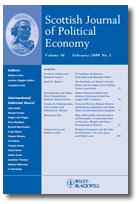
Is There a Gap in the Gap? Regional Differences in the Gender Pay Gap
in: Scottish Journal of Political Economy, No. 4, 2013
Abstract
In this paper, we investigate regional differences in the gender pay gap both theoretically and empirically. Within a spatial model of monopsonistic competition, we show that more densely populated labour markets are more competitive and constrain employers’ ability to discriminate against women. Utilizing a large administrative data set for western Germany and a flexible semi-parametric propensity score matching approach, we find that the unexplained gender pay gap for young workers is substantially lower in large metropolitan than in rural areas. This regional gap in the gap of roughly 10 percentage points remained surprisingly constant over the entire observation period of 30 years.
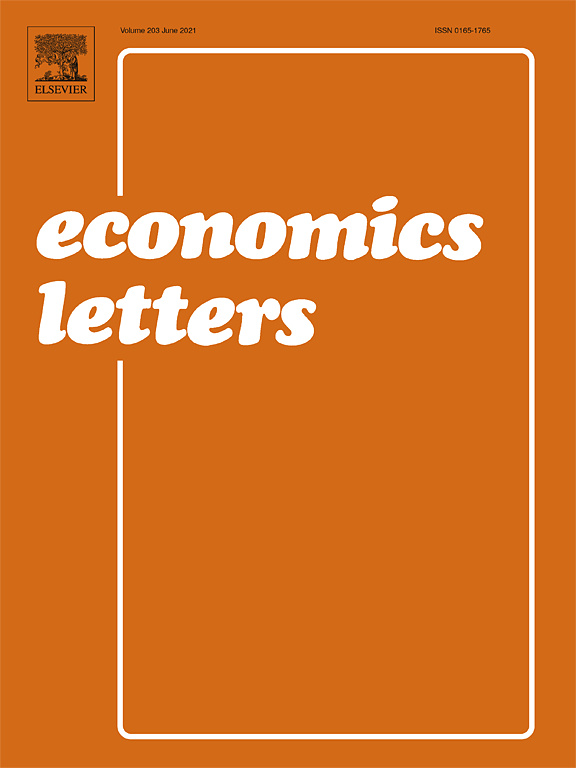
Heterogeneous Treatment Effects in Groups
in: Economics Letters, No. 3, 2013
Abstract
We show in a laboratory experiment that the same method of group induction carries different behavioral consequences. These heterogeneous treatment effects can be directly related to the quality of the relationship established between the subjects. Our results indicate the importance of manipulation checks in group-formation tasks in economic experiments.
Working Papers

Identifying Bankruptcies in German Social Security Data
in: FDZ-Methodenreport, No. 10, 2017
Abstract
Many empirical studies about firm exits point out that it is important to distinguish between different types of closures, e.g., voluntary and involuntary liquidations. This report describes how exits due to bankruptcies can be identified in the German Establishment History Panel (BHP). In contrast to other closures, bankruptcies can be unambiguously regarded as indica-tion for economic failure and can therefore be interpreted as involuntary exits.


















